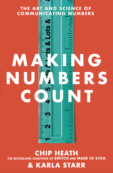Chip and I had an incredible time in Tanzania. So, let me start by saying this: You know that feeling you get when a full explanation would take 25,000 words, but you’ve only got 500, and you’re afraid to oversimplify, but you’re also afraid to give a vague “neat experience” summary, and this causes a cycle of anxiety and actually deters you from writing anything…? So, yeah, that’s the feeling I’ve got.
Let me start at the end: In conjunction with an amazing team of collaborators (more on them in a sec), we cooked up 2 campaigns that will likely be pilot-tested within 6 months. One campaign is intended to encourage Tanzanians to get tested for HIV. (The push for testing was recently given a huge boost by the Tanzanian president, who courageously made a well-publicized visit to a clinic to get tested. The number of tests spiked immediately afterward. And, as a further tangent, his action is a classic situation in which external credibility is more effective than idea stickiness.) The core of the “get tested” campaign is this: That getting tested is an act of solidarity with your fellow Tanzanians. It’s good for the country.
In the prototype posters we hatched, you see pairs of dissimilar Tanzanians (such as a grandma and granddaughter, or a Masai and a manager) who are clutching hands in a show of unity. Around their wrists are colorful bands that signify that they’ve been tested (a la LiveStrong). And the headline is, roughly, “We are Tanzanians.” [For those who have read MTS, we were consciously making an identity appeal with this campaign, similar to Don’t Mess With Texas. See the Emotion chapter. So many AIDS-related campaigns appeal solely to consequences — live longer, reduce your anxiety, it’s quick and easy, you can prevent harm for others, etc. We felt that an identity appeal could provide a stronger motivation.]
The other campaign is intended to combat the common phenomenon of cross-generational relationships. In the stereotypical case, an older male with money and status finds himself a young mistress (often as young as 18 or 19) and maintains a long-term-ish “sugar daddy” type relationship with her. These relationships provide a route for HIV to spread between dissimilar populations, which creates a nasty epidemiological problem. Now, certainly this kind of relationship exists in the Western world. But there’s a counterforce: Social taboos. If a 50 year-old guy is hitting on an 18 year-old, our Pathetic Alarm goes off. Nasty looks are offered. People whisper about the lecher behind his back. But there’s no real equivalent of this taboo in Tanzania — there’s no common language of scorn or disgust or distaste to invoke against these situations.
So, in the second campaign, we introduce a villainous character named Fataki (Swahili for “explosion” or “fireworks” — i.e., keep your distance from this dude). Fataki is a wealthy, powerful guy who is irredeemably sleazy. Comically sleazy. He hits on anything that moves — schoolgirls, strangers, other mens’ wives. In the campaign — which would include posters and radio spots — we’ll try to make people laugh at Fataki’s shamelessness, and also, importantly, at the repeated rejections he receives (think Wile E. Coyote). As the tagline of the campaign will read, “He’s constantly hitting on women. He won’t wear a condom. He won’t get tested. DON’T LET YOUR LOVED ONES GET MIXED UP WITH A FATAKI.”
Our hope is that “Fataki” will enter the lexicon. Our dream is that a year or two from now, we could return to Tanzania and overhear someone in a bar, saying about someone else, “He’s such a Fataki.”
Working on these campaigns was one of the most fun and satisfying moments since the book launch. And what made it fun and satisfying was the company we had: Our hosts, Pam and Mike, from USAID, the branch of the State Department that would lead the launch of these campaigns. Bob (affiliated with Johns Hopkins), who helped organize and lead our work. Plus a half-dozen AIDS-education experts who’ve been working in the region and were willing to share their knowledge and experience. And a hell of a Tanzanian creative team — approximately a dozen scriptwriters, producers, artists, and actors — who helped us develop and produce the campaign mockups, which in turn gave us something concrete to present to the decision-makers. (The process of producing creative work, with conversations constantly translated between English and Swahili, is probably worth another blog post.)
Okay, I’m gonna shut up now. Thanks to those of you who sent encouraging notes to us. We’ll continue to post updates to track the progress of the campaigns.



